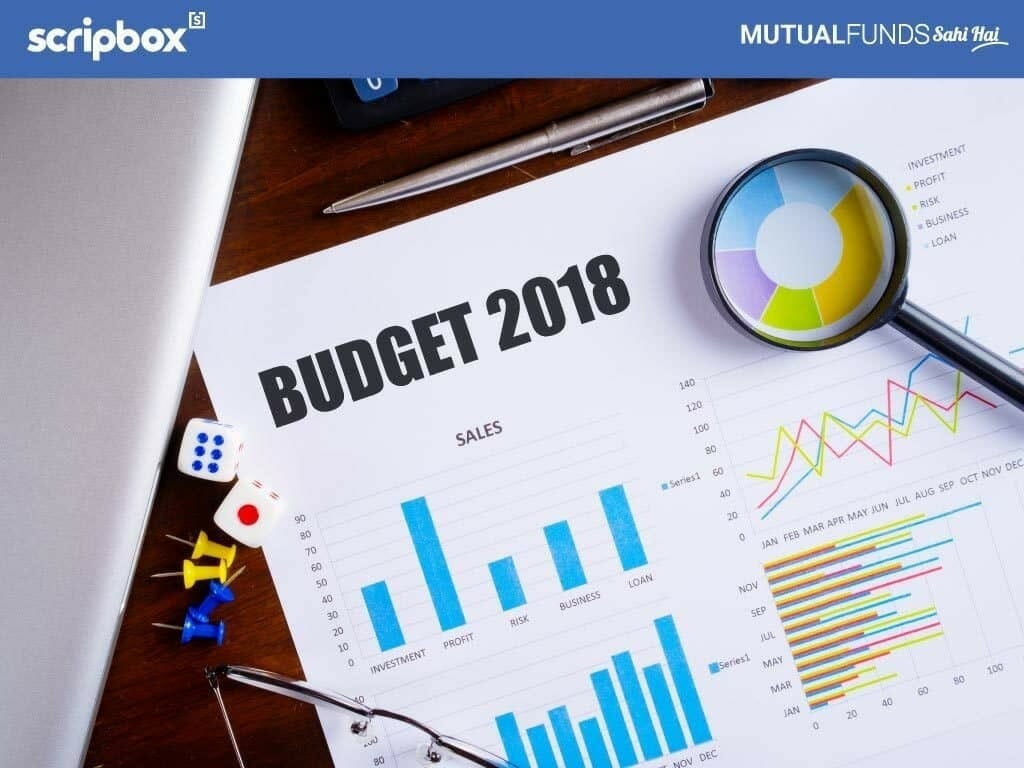
The annual budget 2018 has made a few changes to tax treatment of gains on mutual funds. We review the two proposals that most impact investors in equity mutual funds and conclude that there is no reason for investors in equity mutual funds to panic and take any action.
#1. Long term capital gains tax on equity mutual funds
Equity mutual funds have historically (since 2004) attracted zero tax on long-term capital gains. This happy state of affairs changes with this budget and for the next financial year, a long-term capital gains tax of 10% is applicable to equity mutual funds for returns exceeding Rs 1 Lakh. The short-term capital gains tax of 15% remains unchanged.
Two important points to note:
- Long-term capital gains on equity mutual fund continue to remain exempt until March 31, 2018.
- The budget proposes to tax these capital gains only from this point onward. Accrued capital gains up to January 31st are “grand-fathered” which means that they will never be taxed.
So, how does tax on long term capital gains work?
Let’s say, you had invested Rs 1 lakh in equity mutual funds a year ago.
You sell these funds after April 1, 2018 for Rs 1.3 lakhs after holding them for 1 year (from your actual date of purchase).
To compute your long term capital gains, you need to look at the value of your holdings on January 31, 2018. If, let’s say, that value was Rs 1.2 lakhs, then your long-term capital gains will be Rs 10 thousand (Rs 1.3 lakh – Rs 1.2 lakh). To re-emphasise, you will calculate your taxable gains by subtracting the value on January 31, 2018, rather than the original purchase price.
Since this amount is less than Rs 1 lakh, no tax will be payable.
Click here for a comprehensive note on how to compute long-term capital gains tax on equity mutual funds.
#2. Dividend distribution tax on equity mutual funds
Dividends in equity mutual funds now attract Dividend Distribution Tax of 10%, just as it did for debt mutual funds previously. The rate of dividend distribution tax is lower than it is for debt funds which are 25%.
We don’t think this is a big issue because we have always believed that, when investing in Equity funds, your main objective should be to grow your wealth over the long term. Receiving dividends is, therefore, pointless as it shifts money to cash instead of allowing it to grow. (Our detailed perspective on this here: Dividend Option In Mutual Funds Doesn’t Make Sense; Here’s Why)
There is no need to panic and take any action
Despite the introduction of the long-term capital gains tax, equity mutual funds remain the best investment option for the long-term growth of your money. This just goes to show how good they have been since 2004.
This point remains to be repeated. Yes, equity mutual funds still remain better than ULIPs, Life Insurance etc.
There is also no need for you to “book capital gains” as some people may advise you.
Impact for Scripbox investors
Scripbox has always recommended growth options for mutual funds, so the impact of dividend distribution tax is zero for you.
As you know, we focus a lot on saving you costs of transactions in terms of capital gains tax. We will be revising our algorithms to ensure that they take these changes into account.
We also provide a capital gains statement to ease your tax filing process. We will be making appropriate changes to this statement so that you don’t have to worry about the slightly complex computations for you.











Show comments